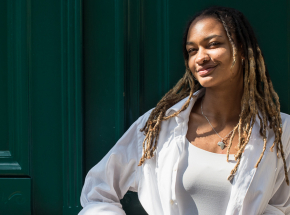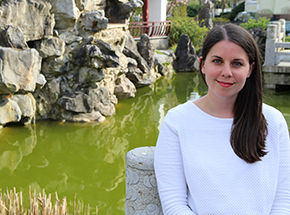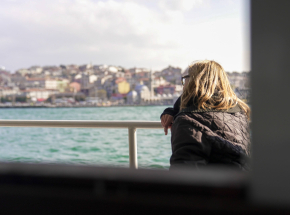- About AUP
- History of AUP
- Mission & Core Values
- Vision and Leadership
- AUP Recognition
- Alumni Success
- Campus Development
- Arts at AUP
- Policies & Guidelines
- Academics
- Undergraduate
- Graduate Programs
- MA in Diplomacy and International Law
- MA in Global Communications
- MSc in Human Rights and Data Science
- MA in International Affairs
- MA in International Affairs, Conflict Resolution, and Civil Society Development
- MSc in International Management
- MSc in Strategic Brand Management
- Find Your Thesis Advisor
- Previous Programs
- Cultural Program
- Faculty
- Summer School
- Research Centers
- The Center for Critical Democracy Studies
- Upcoming Events
- Research Projects
- Fellows’ Publications
- Publishing
- Curriculum
- Community
- Partnerships
- Visiting Scholars
- CCDS Highlights
- Atelier de Théorie Politique – Paris
- Critical Theory 101: Future Directions and New Challenges
- Martti Koskenniemi on “The Law of International Society: A Road not Taken”
- Academic Freedom Symposium
- Tocqueville Colloque 2023
- Violent Turns Conference
- Degenerations of Democracy
- DEMOS21 Inaugural Event
- What Demos for the 21st Century?
- The Paris Centennial Conference
- Justice Stephen Breyer
- Civic Jazz - The Launch of the Center
- Past Events
- FR
- The Center for Writers and Translators
- The George and Irina Schaeffer Center for the Study of Genocide, Human Rights and Conflict Prevention
- The Joy and Edward Frieman Environmental Science Center
- The Center for Media, Communication & Global Change
- The Center for Critical Democracy Studies
- Departments
- Academic Resources
- Academic Affairs
- Academic Calendar
- Academic Resource Center
- Library
- Registrar's Office
- Teaching and Learning Center
- Accessibility & Accommodation Services
- AI@AUP: A Campus-Level Initiative
- Quai D'Orsay Learning Commons
- Paris as Classroom
- ACE
- Admissions
- Student Life
- Campus
- Student Leadership & Involvement
- Paris
- Support Services
- Student Life Help Desk
- Student Accounting Services
- Student Immigration Services
- Student Grievance Procedure
- Diversity and Inclusion
- Health & Well-being
- Digital Student Handbook
- News
- Events
- AUP Giving
- Housing Offer for 2025-2026
- IT Services
- Alumni
- About AUP
- History of AUP
- Mission & Core Values
- Vision and Leadership
- AUP Recognition
- Alumni Success
- Campus Development
- Arts at AUP
- Policies & Guidelines
- Academics
- Undergraduate
- Graduate Programs
- MA in Diplomacy and International Law
- MA in Global Communications
- MSc in Human Rights and Data Science
- MA in International Affairs
- MA in International Affairs, Conflict Resolution, and Civil Society Development
- MSc in International Management
- MSc in Strategic Brand Management
- Find Your Thesis Advisor
- Previous Programs
- Cultural Program
- Faculty
- Summer School
- Research Centers
- The Center for Critical Democracy Studies
- Upcoming Events
- Research Projects
- Fellows’ Publications
- Publishing
- Curriculum
- Community
- Partnerships
- Visiting Scholars
- CCDS Highlights
- Atelier de Théorie Politique – Paris
- Critical Theory 101: Future Directions and New Challenges
- Martti Koskenniemi on “The Law of International Society: A Road not Taken”
- Academic Freedom Symposium
- Tocqueville Colloque 2023
- Violent Turns Conference
- Degenerations of Democracy
- DEMOS21 Inaugural Event
- What Demos for the 21st Century?
- The Paris Centennial Conference
- Justice Stephen Breyer
- Civic Jazz - The Launch of the Center
- Past Events
- FR
- The Center for Writers and Translators
- The George and Irina Schaeffer Center for the Study of Genocide, Human Rights and Conflict Prevention
- The Joy and Edward Frieman Environmental Science Center
- The Center for Media, Communication & Global Change
- The Center for Critical Democracy Studies
- Departments
- Academic Resources
- Academic Affairs
- Academic Calendar
- Academic Resource Center
- Library
- Registrar's Office
- Teaching and Learning Center
- Accessibility & Accommodation Services
- AI@AUP: A Campus-Level Initiative
- Quai D'Orsay Learning Commons
- Paris as Classroom
- ACE
- Admissions
- Student Life
- Campus
- Student Leadership & Involvement
- Paris
- Support Services
- Student Life Help Desk
- Student Accounting Services
- Student Immigration Services
- Student Grievance Procedure
- Diversity and Inclusion
- Health & Well-being
- Digital Student Handbook
- News
- Events
- AUP Giving
- Housing Offer for 2025-2026
- IT Services
- Alumni
Related Links
Alumnus
Ignacio Paz ’09
Major in History
I was 9 when I moved from Spain to Texas and I grew up speaking English and Spanish. When it came time to apply to university, I was torn between returning to my European roots or staying in the American education system. It was my grandfather who suggested that I check out the university mentioned in The Da Vinci Code. Once I’d perused AUP’s website and The Planet, its student newspaper at the time, I realized it was a perfect fit for me.
I already knew that I’d be majoring in History and while fascinated by politics—especially after AUP’s Intro to International Politics class, where students from dozens of nationalities debated diverse global issues—it was my love of news writing that moved me to minor in International Journalism.
I was lucky enough to take my FirstBridge class [a first-year interdisciplinary course] with the legendary Julie Thomas and Kathleen Chevalier. Later, Professor Thomas’s Communicating Fashion course helped me understand fashion’s far-reaching implications and I still draw inspiration from Professor Chevalier’s course on female artists throughout European history. I delved into Napoleon Bonaparte with renowned Napoleonic scholar Steven Englund, traveled to Madrid while learning about the city-state with Stephen Sawyer, explored journalism with George Kazolias and CNN’s senior European correspondent in Paris Jim Bittermann, examined Europe’s interwar years with Terence Murphy, and plunged into the history of Rome with George Wanklyn.
There was a genuine sense that we were valued as students and people who could positively change the world through our collective cooperation and communication.
Looking back on my time at AUP, I’m struck by the sheer number and variety of extracurricular opportunities: I took part in A Chorus Line, became editor-in-chief of The Planet, and gained a deeper understanding of Jacques-Louis David’s The Coronation of Napoleon through the Les Jeunes ont la Parole program, where AUP students explain a work of art to visitors at the Louvre. AUP’s central location also allowed us to regularly visit exhibitions and events around Paris.
It was only after I’d gone to a much larger university for my MA that I truly appreciated the dedicated support of AUP’s professors and staff. They were always there to help us choose classes, have in-depth academic discussions, or just chat about life. There was a genuine sense that we were valued as students and people who could positively change the world through our collective cooperation and communication. I learned the value of challenging myself, questioning the world, and making connections amongst seemingly unrelated disciplines.
I regularly attend alumni events in London, where I live, and on my frequent trips to Paris meet with professors, several of whom wrote me recommendations that were key to my acceptance into a very competitive master’s program in European history at University College London. I can’t stress enough how much I’ve benefited from the international experience I gained through AUP. When I was interviewed at the International Herald Tribune (now the International New York Times), they specifically cited my experience with The Planet, I’ve been contacted by students from my secondary school who want to study outside of the US, and my senior thesis was recently cited in Andrew Roberts’s book, Napoleon the Great.
I am now a secondary school history teacher in Chelmsford, Essex, where I also assist in the development of my school’s outreach program; I’ll soon be reaching out to the AUP alumni community to ask for volunteers who want to give career talks. In yet another nod to the history that I’ve loved all my life, I live in Britain’s oldest recorded town, Colchester. It’s been a trip!
Related
-

Basia-Marie Diagne
Paris as Classroom
Read MoreBasia-Marie Diagne
Paris as Classroom
My relationship with the team remains strong.
-

Mary Einbinder ’11
Alumna
Read MoreMary Einbinder ’11
Alumna
I wanted a school where I’d be encouraged to express myself creatively.
-

Istanbul
Study Trip
Read MoreIstanbul
Study Trip
Students studying either linguistics or the history and politics of the Middle East are invited to attend a three-day study trip to Istanbul.
